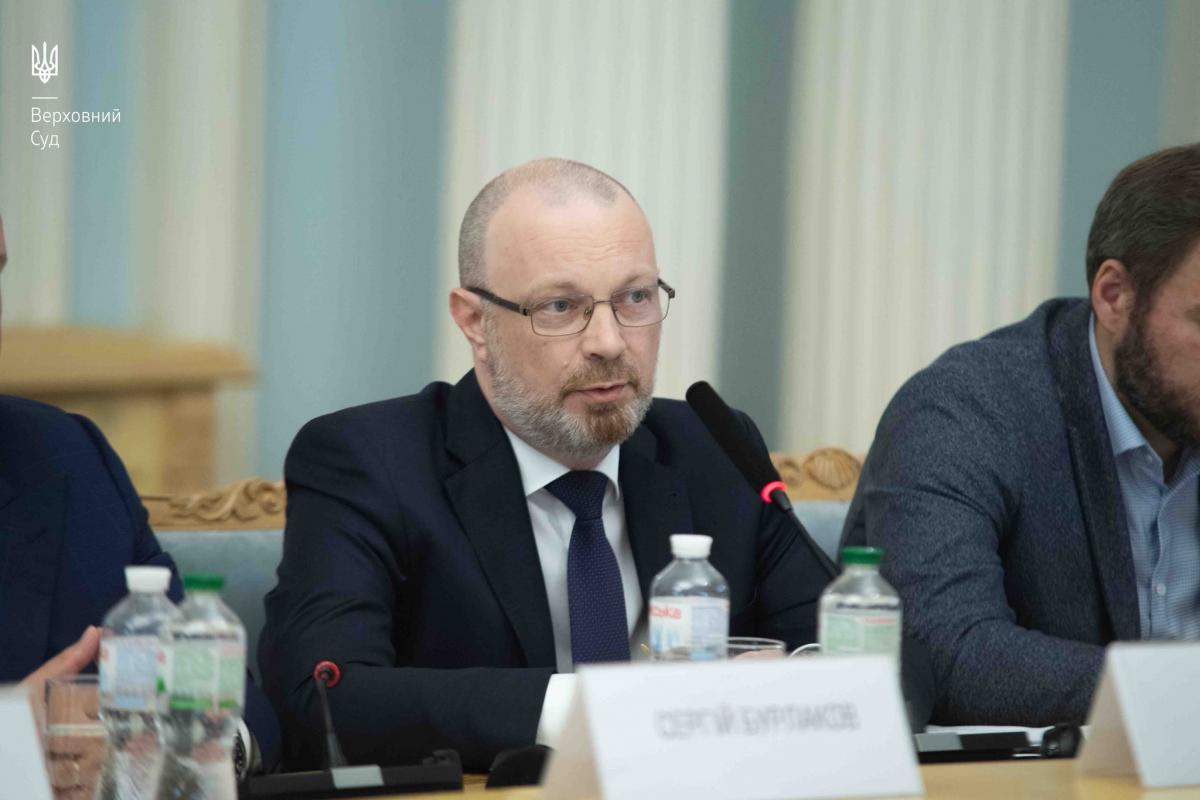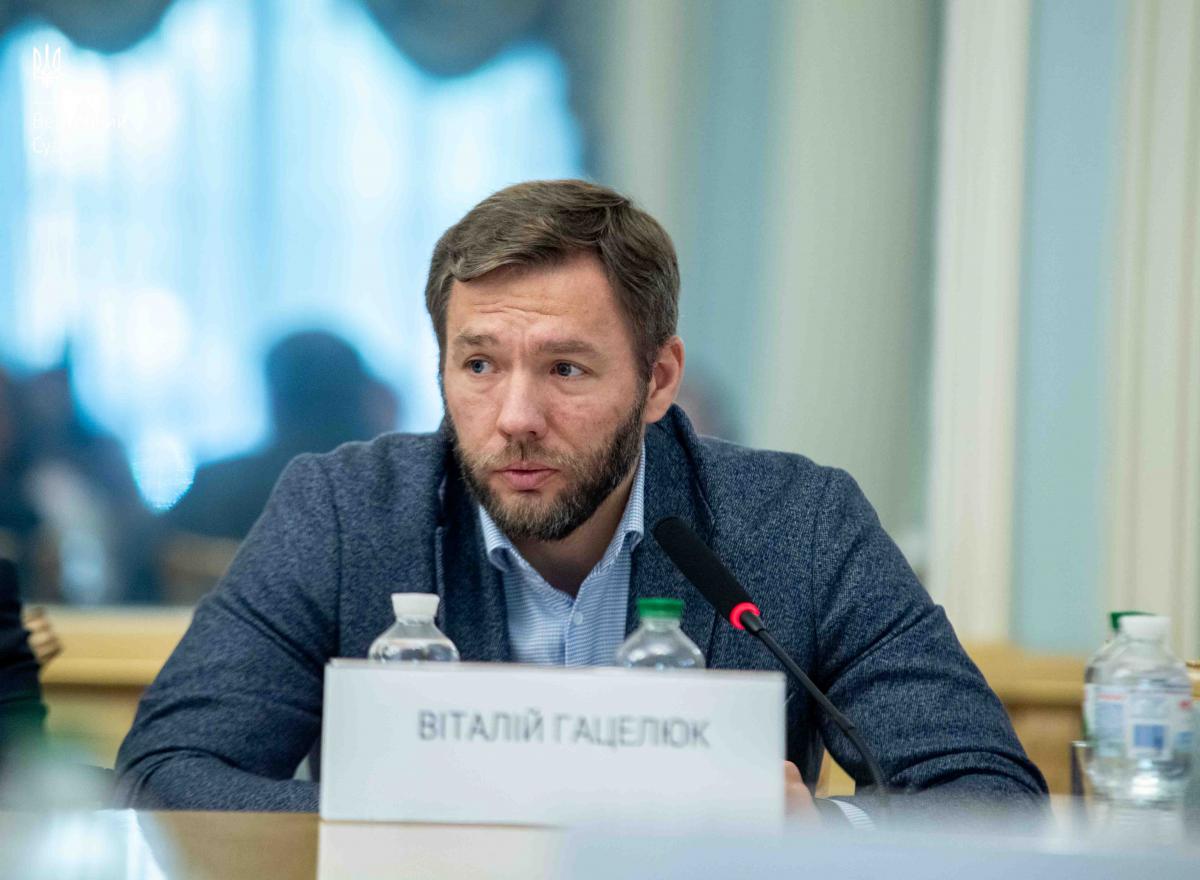
On September 08, 2025, Deputy Chairman of the Commission Oleh Koliush and Commission Member Vitalii Gatseliuk took part in a roundtable discussion on the issue of judges’ disciplinary liability: the responsibility of a judge for a significant violation of substantive and procedural law when delivering a court decision.
In his welcoming remarks, Oleh Koliush emphasised that the issue of judges’ disciplinary liability is of great importance not only for Ukraine but also for European states. A noteworthy example is the adoption by the Consultative Council of European Judges (CCJE) of Opinion
No. 27, entirely dedicated to the question of judicial accountability. According to him, the mechanism of holding judges accountable is an essential element of the proper administration of justice in line with European standards and the principles of the rule of law, while also serving as a tool to strengthen public trust in the judiciary. The issue of holding judges accountable for violations of substantive or procedural law, he noted, requires a well-balanced approach.
“As highlighted in CCJE Opinion No. 27, a judicial decision, interpretation of norms, or assessment of evidence cannot serve as grounds for disciplinary liability of a judge in the absence of malicious intent, willful neglect of duties, or serious misconduct. This is why today’s discussion is extremely important, and we are grateful for the opportunity to share our findings,” summarised the Deputy Chairman of the Commission.
Commission Member Vitalii Gatseliuk presented his own vision of the problematic aspects and possible directions for improving legislation in the area of judges’ disciplinary liability. He pointed out that although this function formally no longer falls within the powers of the High Qualification Commission of Judges of Ukraine, the practice of the Supreme Court demonstrates that a number of related issues remain closely tied to the Commission’s activities. In particular, he referred to cases where the results of training at the National School of Judges of Ukraine had been used as grounds for evaluating judges’ suitability for the position held and for conclusions regarding their integrity. The Supreme Court has emphasised that such approaches are not always consistent with the law, since the criteria of professional competence and integrity must be assessed separately.
In this context, the speaker noted that in the future, the evaluation of judges and judicial candidates will be carried out based on unified integrity indicators approved in accordance with the law. One of the main challenges, in his view, is clearly distinguishing between competence, integrity, and ethical aspects, as these categories often overlap in practice.
In addition, Vitalii Gatseliuk addressed broader issues of the legal regulation of disciplinary liability. He stressed that the more effectively and inevitably disciplinary measures are applied for minor violations, the less there is need for harsher sanctions. This approach aligns with modern trends in fostering a culture of integrity not only among judges but also in public service more broadly.
Separately, the Commission Member highlighted the importance of the doctrine of “good faith judicial error”, developed by the High Council of Justice. This doctrine is intended to safeguard judicial independence, recognising that not every mistake in the application of law should constitute grounds for legal liability.
He further explained that in its work, the HQCJ takes into account a number of criteria – the gravity of the violation, its consequences, recurrence, and the motives behind the judge’s behavior. This makes it possible to apply a differentiated approach in determining liability and avoid a purely formalistic treatment.
The event was attended by Stanislav Kravchenko, President of the Supreme Court; Oksana Kvasha, Deputy Chairman of the High Council of Justice; Iryna Kushnir, Project Manager of the Council of Europe project “Support to the Functioning of Justice in the War and Post-War Context in Ukraine”; as well as members of the High Council of Justice, judges of the Supreme Court, and experts of the Council of Europe.
The roundtable was organised by the Supreme Court in cooperation with the Council of Europe project “Support to the Functioning of Justice in the War and Post-War Context in Ukraine”.


